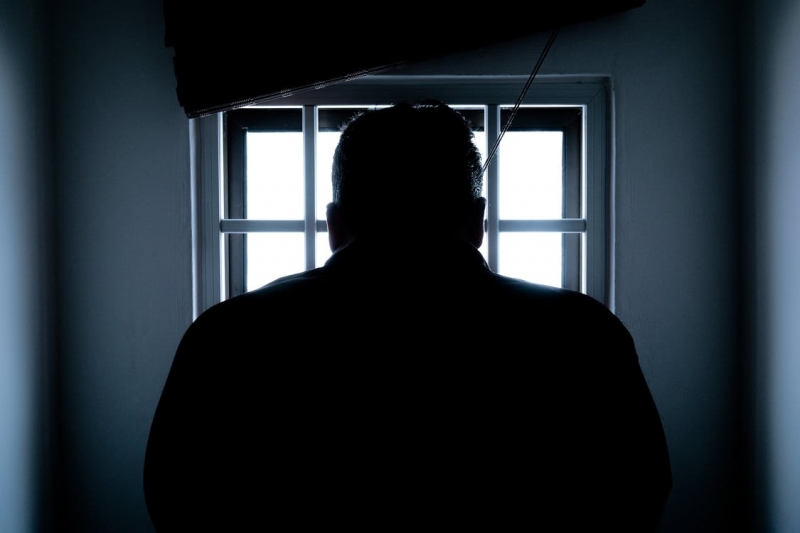
Sexual abuse in correctional facilities is a crime and a human rights violation. Inmates in our nation's correctional facilities are uniquely vulnerable to sexual violence due to their exposure to and isolated contact with other violent offenders and corrections officers. Each year, over 200,000 inmates are sexually abused, which can lead to physical and emotional consequences including post-traumatic stress disorder, depression, drug addiction, and the transmission of HIV and other sexually transmitted infections. These consequences are not confined to correctional facilities, as 600,000 inmates are released back into their communities each year, making an effective criminal justice response to prison rape that much more crucial.
Offenders who work in correctional facilities present unique challenges to investigators and other criminal justice officials, including possible cover-ups by colleagues, intimidation of victims, threats to victims and other inmates or potential witnesses, intimate knowledge of prison layout and systems that help them perpetrate and conceal crimes, availability and destruction of evidence, possible impediments to the investigatory cooperation of others in the prison, and challenges regarding the trial admissibility of their statements to prison supervisors. Offenders who are fellow inmates also present unique challenges to criminal justice officials, including their own criminal expertise. They may be experts at identifying vulnerable victims; isolating them; using force, threats, or coercion to sexually abuse victims; and intimidating other inmates into silence. If the abuser is part of a gang, they may use that affiliation as means to silence the victim.
A victim's history with criminal justice professionals - particularly law enforcement officers - may result in an inherent distrust of any law enforcement and a desire to avoid participation in the criminal justice process. Due to this distrust, fear, shame, embarrassment, and other feelings, victims may not report at all or may delay a report, thus resulting in other possible investigatory and prosecutorial challenges - particularly the destruction of evidence. In addition, delayed complaints may result in defense challenges to a victim's credibility at trial.
National PREA Resource Center
The prevalence and serious negative impact of sexual abuse in confinement warranted specific legislation and mandatory corrections intervention, which led to the enactment of the 2003 Prison Rape Elimination Act (PREA) and subsequent 2012 National Standards to Prevent, Detect, and Respond to Prison Rape (National Standards). The legislation and National Standards solidified the need for a comprehensive response to these crimes on the part of corrections and allied criminal justice professionals, including prosecutors.
The prosecution of those who perpetrate sexual abuse in confinement is necessary to achieve safety and is integral to preventing future abuse within and outside of facility walls. Cases of sexual abuse in confinement have persistently presented challenges to investigators and prosecutors, but the recent implementation of the National Standards - designed to prevent sexual abuse - provides safe reporting mechanisms for victims and mandates first responder duties aimed at maintaining victim safety and preserving evidence to support a thorough investigation. These new standards, coupled with helpful prosecutorial strategies based on informed practice, provide the tools that prosecutors need to hold rapists accountable.
In recognition of the need to provide targeted assistance for these unique cases, AEquitas was named as an original collaborating organization with the National PREA Resource Center (PRC), a project of the National Council on Crime and Delinquency (NCCD). As part of that collaboration, AEquitas develops resources and tools for prosecutors and allied criminal justice professionals who handle cases of sexual abuse in confinement. These tools include publications, webinars, training, and technical assistance - all of which focus on the prosecution of these cases and are available at no cost.
The PRC was established through a cooperative agreement between the U.S. Department of Justice, Bureau of Justice Assistance, and NCCD. The mission of the PRC is to assist adult prisons and jails, juvenile facilities, lockups, community corrections, and tribal facilities in their efforts to eliminate sexual abuse by increasing their capacity for prevention, detection, monitoring, responses to incidents, and services to victims and their families. For more information on the PRC, click here.
Additional information including resources, publications, training announcements, and webinar recordings related to the prosecution of sexual abuse in confinement can be accessed via our library and training pages.
- FEATURED RESOURCES
-
56 pages | January, 2016
-
-
-